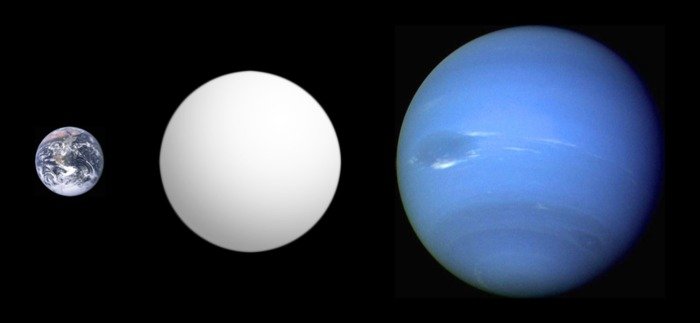TOKYO, Sept. 4 (UPI) -- Japanese researchers say observation of a distant exoplanet in the center of the Milky Way suggests the "super-Earth" likely has a water-rich atmosphere.
Super-Earths are exoplanets orbiting a star outside of the solar system with a mass and radius larger than Earth's but smaller than those of ice giants in our system such as Uranus or Neptune.















